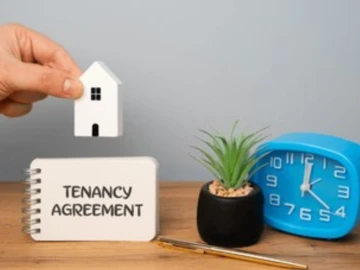Zimbabwe's real estate landscape is an exciting frontier for savvy investors.This beginner-friendly guide serves as your essential toolkit, equipping you with the knowledge and confidence to navigate this dynamic market. We'll provide you with clear, step-by-step guidance, from understanding hot property areas in Harare like Mount Pleasant and Borrowdale to identifying the best property types (apartments, houses, commercial spaces) for your investment goals.:
Step 1: Understanding the Market Landscape
Before diving in, familiarisation is key. Here's what you need to know:
- Market Cycles: Zimbabwe's real estate isn't static - residential property values fluctuate. Research historical trends to understand current conditions and predict future investment opportunities.
- Location is Key: Major cities like Harare and Bulawayo offer higher rental yields (income from renting) and potential for capital appreciation (property value increase) due to strong demand. But don't ignore up-and-coming areas with development potential.
- Currency Matters: Consider focusing on properties with strong USD rental income to mitigate risk from currency fluctuations.
Step 2: Defining Your Investment Goals
- Property Type: Apartments often see higher occupancy rates due to affordability and convenience.
- Location, Location: Proximity to amenities like schools, workplaces, and shopping centres attracts tenants.
- Tenant Demographics: Understanding your target renter helps optimise your property and attract the right fit.
- Fix & Flip: Unveiling Hidden Gems : This strategy involves acquiring undervalued properties, renovating them to boost their market value, and then selling them for a profit.
Step 3: Building Your Financial Foundation
Real estate investment requires a solid financial base. Here's what to consider:
- Down Payment: Be prepared! Most lenders require a chunk upfront, typically 20-40% of the property's price.
- Financing Avenues: Explore your options - banks, private lenders, and even microfinance institutions might offer solutions. Research interest rates, repayment terms, and any hidden fees to choose the best fit.
- Beyond the Purchase Price: Don't forget hidden costs! Factor in transfer fees, legal fees, potential renovations for "Fix & Flip" strategies, ongoing maintenance, and property taxes to ensure a smooth investment journey.
Step 4: Partnering with the Right Team
Surround yourself with experienced professionals who can guide you through the process.
- Real Estate Agent: A local, reputable agent can provide valuable insights into specific neighbourhoods, market trends, and negotiation strategies.
- Lawyer: Ensure all legal aspects, including title deeds and contracts, are handled correctly.
- Quantity Surveyor (QS): For fix-and-flip projects, a QS can provide accurate cost estimates for renovations.
Step 5: Conducting Thorough Due Diligence
Don't rush into any purchase. Here are key steps in property evaluation:
- Title Deeds Verification: Confirm the property's legal ownership and ensure there are no outstanding claims.
- Physical Inspection: Conduct a thorough inspection for any structural damage, potential repair needs, and compliance with building regulations.
- Valuation Report: Consider obtaining a professional valuation report to determine the property's fair market value.
Step 6: Negotiation and Closing the Deal
Once you've found the right property, it's time to negotiate. Leverage your realtor's expertise to secure a favourable price. Here are some tips:
- Be Prepared: Have your finances in order and understand the property's true value.
- Start Low: Make an initial offer below the asking price and be willing to negotiate.
- Consider Closing Costs: Factor in closing costs when making your final offer.
Step 7: Property Management and Beyond
Congratulations! You're now a real estate investor. Here's how to ensure your investment flourishes:
- Property Management: If you plan to rent out the property, consider hiring a reputable property management company to handle tenant screening, rent collection, and maintenance.
- Staying Informed: Keep yourself updated on market trends, potential risks, and new investment opportunities.
- Building a Portfolio: As you gain experience and capital, consider expanding your property portfolio to diversify your investments and mitigate risk.
Investing in Zimbabwe's future:
Real estate investment in Zimbabwe offers the potential for significant returns. However, it's crucial to approach it strategically and with a long-term perspective. By following these steps ,you can navigate the market's unique dynamics and become a savvy real estate investor in Zimbabwe.
Remember, this guide is a starting point. Consulting with financial advisors and experienced real estate professionals is paramount for making informed investment decisions.
 Continue with Facebook
Continue with Facebook
 Continue with Email
Continue with Email














